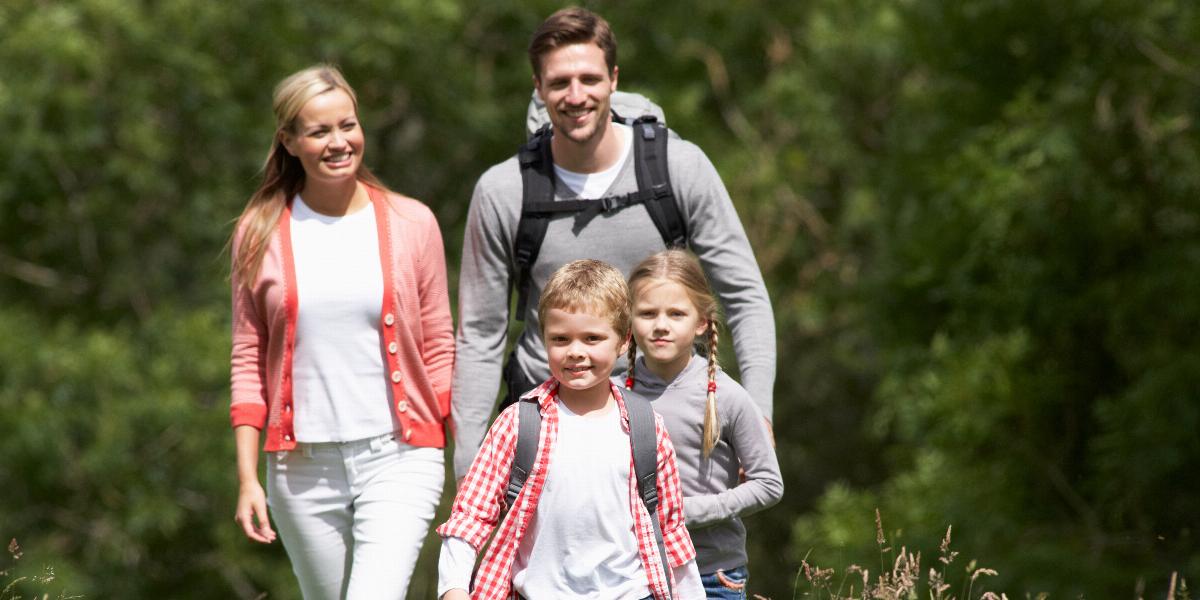What Do You Need for a Perfect Day Hiking

There's nothing like the great outdoors. Fresh air, being surrounded by nature and discovering the wonders that the planet has to offer can be very rewarding. Hiking offers the best way to become immersed in the full experience and provides the opportunity to step into a different environment, encounter vistas and observe wildlife in their natural habitat. But to experience it right, you need the right gear and the right plans. Buying that can sometimes be more expensive than hoped.
Some people may be curious about hiking but find themselves intimidated because they don't know enough about the subject or feel they may not be in the right shape to pursue the hobby. Many might be under the mistaken impression that hiking involves climbing mountains while wearing large amounts of bulky gear, and rappelling. However, hiking is actually just the technical term for walking long distances outdoors in typically rural or remote locations. Learning from the answers to the following questions may help to shed any preconceived notions preventing some individuals from getting out there.
1. Does hiking mean backpacking?
A: Hiking refers to going out for a day where no overnight preparations are required. Typically the trails are paved or well-defined. The term backpacking is for when the hiking will take place for more than one day and will involve the need for overnight supplies. Hikers will then require a backpack of gear (food, sleeping bags, tents, cookware, etc.) in order to be self-sufficient outdoors. In addition, backpackers generally go further into the wild and off paved trails. It’s perfectly fine to acquire a backpack and load it with goodies for your hike, but don’t feel like it’s mandatory for a short one.
2. What are some essential items needed to enjoy a day hike?
A: It depends on how long of a hike is being planned, the weather or season, and the terrain. For summer hikes, lightweight clothing that can allow sweat to evaporate is best. In winter, layering clothes is the best option for keeping warm when needed or shedding a layer or two when becoming heated from the activity.
If the hike is not going to take very long, comfortable sneakers will suffice. However, if hours of exploration are the goal, a good pair of hiking boots can make the difference between enjoying the activity or not.
One absolute must-have, regardless of trail length, weather, or terrain, is water. Staying hydrated during activities is good common sense. Investing in a convenient to carry or clip on water bottle can make carrying it less of a hassle.
3. How can I find the right hiking trail?
A: There are many online resources that can be used to research trails. Many websites are devoted to documenting and rating trails to help inform others decide if they feel capable enough to handle it. To explore a national park, their websites also contain helpful trail information and usually maps of the trails. A path can be chosen based on how long the trail is, the difficulty rating, and if it contains features of interest (such as waterfalls or overlooks).
For absolute beginners who are unsure about hiking or their fitness level, the best bet is to select a short paved trail with little to no incline or a loop, meaning the trail will circle around and return to the starting point. For the really serious hikers, a tough trail can be the centerpiece of planning and booking a vacation!
4. Are there any safety tips I should follow to prepare to go hiking?
A: Always check the weather forecast for the area. Extreme hot or cold temperatures, precipitation, or threat of lightning or storms are things that can be prepared for and/or avoided by knowing what to expect before setting out.
There is often no cell phone signal in remote hiking locations and national parks. Relying on something battery-powered translates to more gear to be carried. Instead, opt for a map and compass as back-up for providing directions.
An extremely important safety rule is to let someone know where you're going and what area is going to be explored. Just in case anything should happen, people will know where to look for you.
5. Are there any hiking etiquette rules to follow?
A: People venture outdoors in order to commune with nature. As such, most parks, trails, and seasoned hikers are pretty strict on making sure to leave the setting just as they found it. In other words, no fires and no littering. It's a good idea to make some noise so that any nearby animals will not be caught off guard and become aggressive, but it's not okay to be so loud that it intrudes on other people's experience.
Hiking doesn't require being an expert. It's a hobby that can be enjoyed by pretty much anyone who does their research beforehand about the area they'd like to explore, is properly prepared, and has a healthy curiosity.


